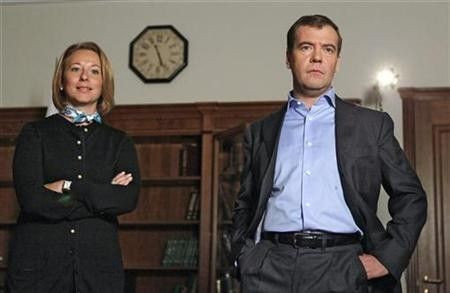Russia gets closer to joining WTO after 17 years

After nearly a 17-year long wait, Russia could finally be a member of the World Trade Organization by 2011, as it finally reached a deal with European Union, the last opposing member, on Wednesday.
We settled all the issues with the EU and now, with account of the U.S. position, Russia doesn't have any barriers towards joining the WTO, first deputy Prime Minister Igor Shuvalov said in a statement.
Russia and the EU agreed to phase out Russian export taxes on raw materials, particularly timber, a point of concern for many European nations as it drove up the costs of manufacturing. The phasing out will occur after Russia becomes a member of the WTO.
The deal with the EU is one of the last hurdles Russia had to face in its 17-year long battle for WTO membership. Russia is the last of the big economies that is not a member of the 153-nation WTO.
Russia first applied for membership in June 1993. However, many of the country's policies were not compliant with WTO regulations and Russia has been on a constant spree of negotiating for the position since then.
Russia has managed to turn WTO accession on its head by acting as a deal maker, not a deal taker. Year after year, Russian negotiators have signaled that they have made more progress than is in fact the case and have refused to budge on key issues, David Christy said in an article on NPR in June, 2010.
In August, Russia lifted a ban on poultry imports from several U.S. plants, removing one of the major barriers between the country and the U.S. The other major concern during the talks between the two nations was intellectual property rights.
According to WTO regulations, there are minimum standards to be met by its member nations on various areas, including protection of intellectual property rights.
Russia agreed to improve its efforts to stop piracy, counterfeiting of music and other such intellectual property. Russia has been known to have virtually non-existent copyright laws under the Tsarist regime. It was only in 1967 that Russia signed its first international copyright agreement.
There are other issues that Russia needs to tackle before it can join the WTO. The Russia-EU deal will be officially signed in December.
Some of those issues include fair and regular health laws for farm imports, stricter enforcement of intellectual property rights and agricultural trade.
Majority of the Russian economy is dependent on natural resources exports and agricultural exports, making it necessary for the laws of the country to be compliant with WTO standards.
Russia plans to increase its exports of chicken, beef and pork by the end of 2012.
Russia also has to sort out territorial issues with Georgia, with whom it has been in a state of war since 2008.
Georgia, currently a member of the WTO, has the power to block Russia from joining the WTO. However, Russia does not consider Georgia much of an obstacle at this point. The Russian deputy PM Shuvalov said he has not heard anything about Georgia wanting to block Russia's ascension currently.
However, experts believe Moscow would have to tackle this issue before it can officially be a member of the WTO.
Separately, China and Russia signed an agreement to expand bilateral trade and began trading the yuan against the Russian ruble earlier this week. The move also phases out the U.S. dollar, which has become weak due to the economic recession and the following government bailouts and stimulus plans.
Though experts believe that the impact of the move on the U.S. dollar is limited, it remains to be seen how the U.S. would react.
© Copyright IBTimes 2025. All rights reserved.





















